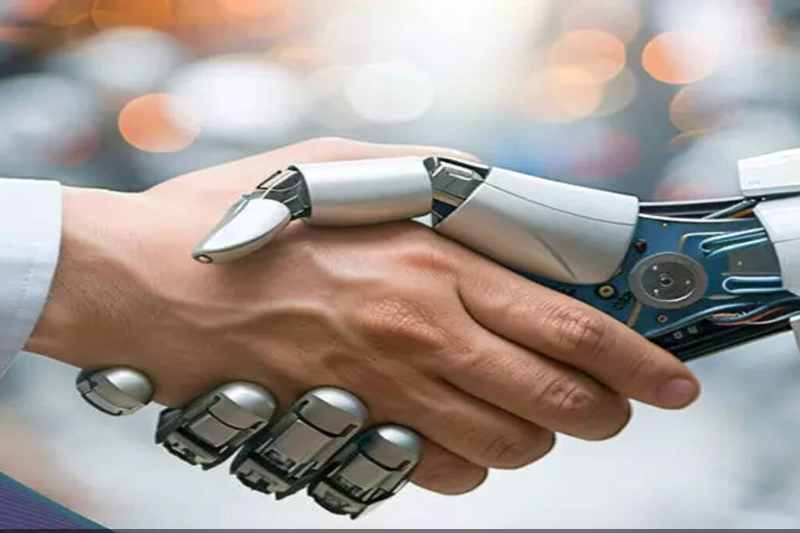
India’s Tech Education Embraces AI Revolution to Build a Future-Ready Workforce
India is on the cusp of a transformative AI revolution, with a groundbreaking report by the Union Ministry of Electronics and IT projecting a need for one million AI professionals by 2026. Titled "India’s AI Revolution: A Roadmap to Viksit Bharat", the report outlines how the country’s aspirations to become a USD 23 to USD 35 trillion economy by 2047 hinge on nurturing an AI-ready workforce and reimagining higher education, especially engineering.
AI Surge Sparks Fundamental Shift in Engineering Education
At the heart of this shift lies a complete overhaul in engineering education, aimed at equipping students for a job market increasingly dominated by Artificial Intelligence, Automation, and Interdisciplinary Innovation.
According to the All India Council for Technical Education (AICTE), the number of approved B.Tech seats for the 2024–25 academic year has reached 14.9 lakh, marking a 16% increase over the last four years. Notably, this growth is primarily driven by a 50+% increase in seats for disciplines aligned with AI and digital technologies, such as AI/ML, Data Science, Cybersecurity, Cloud Computing, and Blockchain.
The evolving tech education landscape is pushing boundaries by integrating interdisciplinary learning and industry collaboration. Traditional STEM (Science, Technology, Engineering, Mathematics) is giving way to STEAM, which incorporates the Arts, enabling students to combine coding skills with creativity, design thinking, psychology, ethics, and law.
Institutions Step Up to Shape AI Talent Hubs
Several forward-looking institutions are leading the change with AI-driven curricula and infrastructure designed to produce globally competent innovators.
Symbiosis Artificial Intelligence Institute (SAII)
Symbiosis International (Deemed University) has launched the Symbiosis Artificial Intelligence Institute (SAII) to integrate cutting-edge AI technologies into academic and research programs.
“By embracing AI, we are not just keeping pace with global innovation but also empowering our students to become responsible innovators,”
Says Amruta Yeravdekar Ruikar, Head of International Admissions & Promotions at Symbiosis.
At SAII and its Symbiosis Dubai campus, students pursuing B.Tech and BCA programs are introduced to AI specialisations from day one, enabling deep theoretical learning alongside real-world applications. The curriculum aims to instill both technical depth and interdisciplinary agility, aligning students with the evolving needs of the industry.
Industry-Driven Learning at SRM Institute
The SRM Institute of Science and Technology, with campuses in Ramapuram, Chennai, and Tiruchirappalli, has developed a range of interdisciplinary AI-focused programs.
“The surge in demand for AI professionals stems from rapid technological progress. As AI reshapes productivity and innovation, preparing a future-ready workforce is imperative.”
Notes Dr. Kathiravan Kannan, Director, SRM Group of Institutions.
Courses such as Medical Engineering, ECE with Data Science, Biotechnology (with a focus on Food Technology), and AI-ML Embedded Systems reflect a deliberate strategy to integrate AI with emerging domains. What sets SRM apart is its academic-industry collaboration, providing students with real-world exposure and global competitiveness.
Mahindra University Champions Experiential AI Learning
Mahindra University is another institution driving AI integration through experiential learning, innovation, and ethics.
“We see a growing need to foster an innovation ecosystem driven by AI for today’s youth. Academic excellence is achieved when foundational knowledge is combined with real-world application.”
Shares Dr. Yajulu Medury, Vice Chancellor, Mahindra University.
Mahindra’s approach involves internships, global immersion programmes, and research initiatives. The university promotes a multidisciplinary framework that builds not just technical proficiency, but also problem-solving, emotional intelligence, and ethical grounding—crucial skills in the AI era.
India’s Global Standing in AI Talent
The India Skills Report 2024 by Wheebox supports the Ministry's forecast, stating that India’s AI industry is projected to reach USD 28.8 billion by 2025, with a Compound Annual Growth Rate (CAGR) of 45%. Between 2016 and 2023, the country’s AI-skilled workforce grew 14-fold, cementing India’s position among the top five fastest-growing AI talent hubs alongside Singapore, Finland, Ireland, and Canada.
These statistics serve as a testament to India’s potential to dominate the global AI landscape, provided the current momentum in educational reforms continues.
The Road Ahead: From Aspiration to Implementation
India’s bold vision to become a global AI leader rests on three key pillars:
- Expanding access to AI-specialised education through increased intake capacity and new institutions.
- Blending technical education with real-world exposure and interdisciplinary learning.
- Building ethical, responsible, and innovative problem-solvers ready for global challenges.
With over a million AI professionals needed in just the following year, the urgency is apparent. Universities, government bodies, and industries must continue to collaborate to produce a workforce that’s not only skilled in AI but also equipped to drive inclusive and sustainable innovation.
Conclusion
India’s march toward becoming a global AI powerhouse is well underway. As the country restructures its education system to produce future-ready professionals, the stakes couldn’t be higher. With demand for AI talent skyrocketing, initiatives like SAII, SRM’s interdisciplinary programs, and Mahindra University’s experiential learning pathways are not just timely—they are transformative.
The coming years will determine whether India can bridge the talent gap and lead the world in AI innovation. If current trends persist, that vision seems not only possible but inevitable.



